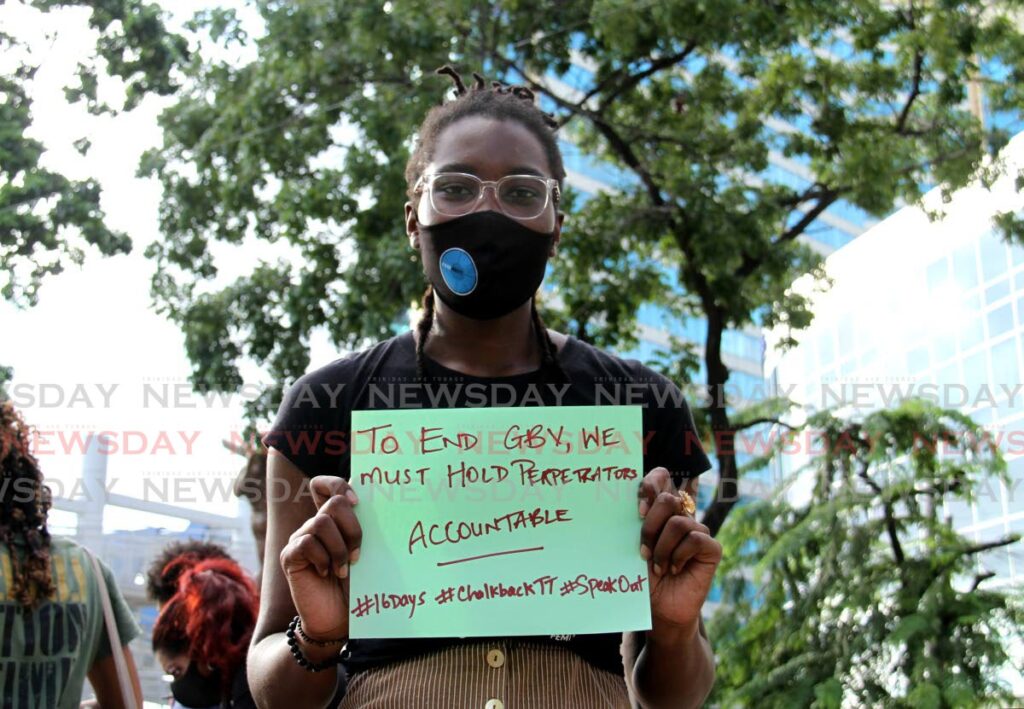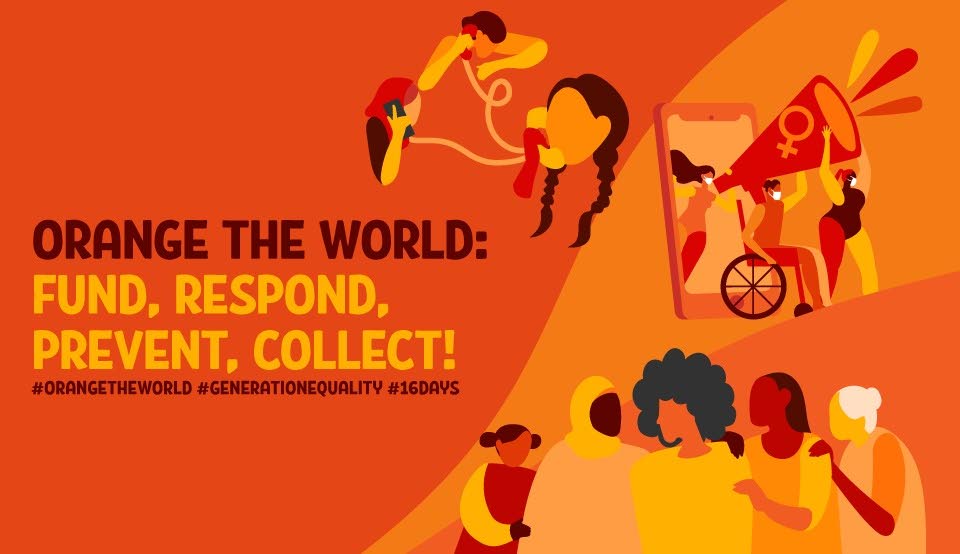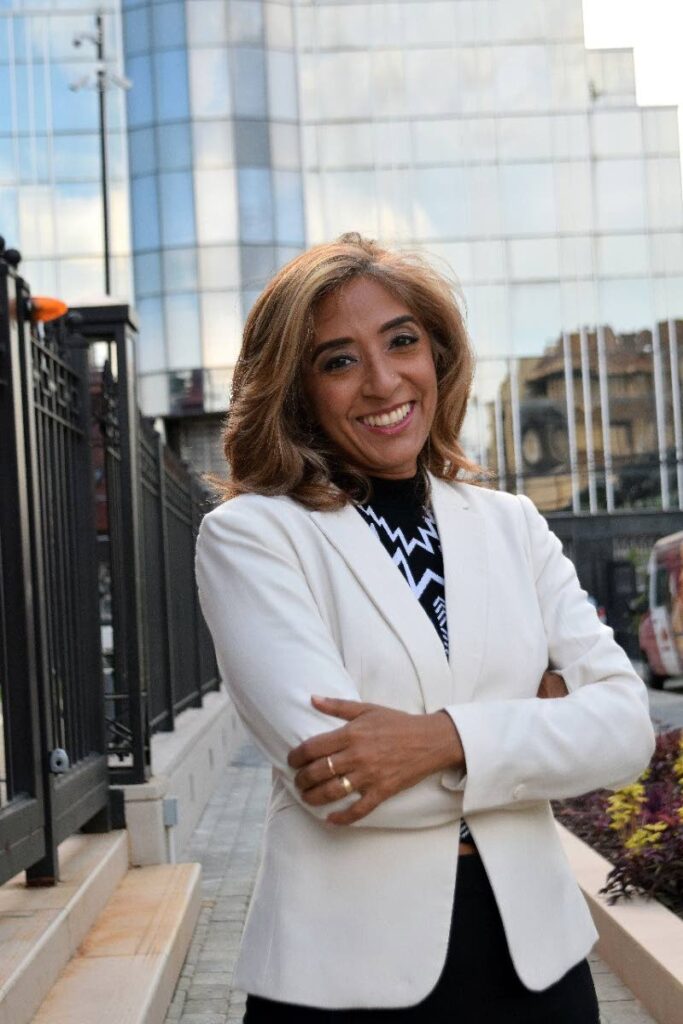Fighting gender-based violence through the arts

UWI's Institute for Gender and Development Studies (IGDS) and the UK's University of Leicester are coming together to study how gender-based violence (GBV) is portrayed in the arts, focusing on poetry, drama, spoken word and popular music.
Researchers at UWI’s St Augustine and Mona campuses have partnered with researchers at the Leicester university on the project. The principal investigator is Leicester’s Dr Lucy Evans and the co-investigators are UWI's St Augustine, senior lecturer at IGDS Dr Gabrielle Hosein, also a Newsday columnist, and UWI Mona's Dr Sonjah Stanley Niaah.
In the Caribbean, the research teams include the IGDS, St Augustine campus and the Institute of Caribbean Studies and Reggae Studies Unit, Mona campus, Jamaica. UWI St Augustine’s Amilcar Sanatan is also part of the research team.
The team has also partnered with Jamaica's Tribe Sankofa and TT's the Roots Foundation and Bocas Lit Fest.

In e-mail responses to Newsday, Hosein said in TT, the project aims to produce a spoken word or rapso-based script and play which will focus on GBV and reflect the perspectives and experiences of teenagers.
“The script will be combined with a facilitation guide which would allow drama groups or theatre clubs in schools to learn the script but also have guided conversations about the play’s characters and plot – helping adolescents to reflect on the causes and consequences of GBV, how it manifests in young people’s lives and the solutions such as transformation of our current social and gender norms,” she said.
Work has just started on the script, Hosein said. The project, expected to last for 20 months, started in September and will run until May 2023.
Hosein added that the script will first be performed and improved on based on youth responses from three workshops, two in April and one in August. The script and facilitation guide won’t be finalised until the final workshop in August.
The team has partnered with the Roots Foundation to produce the play, Hosein said.
"Roots Foundation has a long history of using the oral traditions as part of building youth leadership and empowerment."
Mtima Solwazi, its founder, said, “We use oral tradition as a catalyst for social change by creating safe spaces for expressions.”
The foundation runs three year-long programmes to drive social change: Cascadoo Spoken Word International Festival, Abyssinia: A Journey of Change (a programme for gang intervention) and its media outreach, Beyond the Lens.
He said Hosein contacted the group for International Men’s Day and for 16 days of activism against GBV. For Solwazi, GBV is not a women’s issue: he said while it largely affects women and girls, most of the perpetrators were men. For this reason, it was a gender issue and men need to be allies, he said. This is how the foundation became involved.

He said the organisation can help in the fight against GBV through its work and its access to various communities.
Asked if he thinks the arts can aid in the fight against GBV, Solwazi said, “Yes” – there were many men who wanted to express themselves and all TT had to do was create avenues.
“The creative arts is the ideal avenue to not just get certain fellas or girls out of a certain lifestyle, but also...to reduce gender-based violence,” he said.
Hosein said IGDS and Roots Foundation bring extensive experience in such outreach and IGDS had been collaborating with the Two Cents Movement over the last five years on using spoken word as part of its GBV outreach in schools.
The goal is that the play will be published and made available for "those wanting to raise awareness about GBV with teenagers and students.
"Its facilitation guide will help them to reflect on their own knowledge, attitudes and practices as they learn and reflect on the script. Finally, in performing the play for others in schools or communities, they can then be able to answer questions about GBV, speak about their own experience of learning more, and become peer educators, all through the arts and forms typically associated with our oral traditions," she said.
The project morphed out of a partnership between UWI and the University of Leicester which began in 2015 with a research networking project that brought together researchers from the UK and across the Caribbean.
Hosein said the project team then met as part of this network, which focused on crime in the anglophone Caribbean.
She added that she has been working with spoken-word organisations in TT on youth outreach for several years and the current project on gender-based violence and arts activism in the Caribbean builds on the earlier work.
The project is also part of a broader regional outreach, Hosein said. In Jamaica, there will be a workshop series in secondary schools where students will produce and record reggae and dancehall songs.
The project's website said it is an international, collaborative research project funded by the UK Arts and Humanities Research Council.
"Presented by the World Health Organization (WHO) and the UN as a global public health crisis, gender-based violence (GBV) is particularly pervasive in Anglophone Caribbean countries, which have some of the highest rates of reported rape and femicide in the world. Homophobic and transphobic violence is also an urgent human rights issue in the region. GBV can be understood as any form of violence and abuse – physical, psychological or emotional – which is rooted in gender norms and power dynamics. It can be inflicted on women, girls, boys and men in a variety of contexts," it said.

The project aims to study how various forms of GBV are portrayed in contemporary fiction, poetry, drama, spoken word and popular music and to mobilise "the use of these aesthetic forms as modes of activism against GBV."
It will also analyse representations of GBV in 21st-century anglophone Caribbean literary and performance cultures; investigate how literary writers, spoken-word poets and musicians are already using their creative work to generate conversations around GBV and generate new creative work on the theme of GBV and equip young people to take leadership in arts activism against GBV, Hosein said.
Out of the project there will be a fiction and poetry anthology published by Peekash Press, a spoken-word play with a facilitation guide, a toolkit on performing arts approaches to GBV education, a journal issue and journal articles, she added.


Comments
"Fighting gender-based violence through the arts"